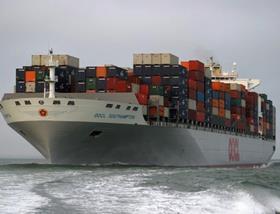
A proposal has been put to the International Maritime Organisation(IMO) and its member governments regarding the introduction of a newglobal Vessel Efficiency System (VES), which is aimed at improving the carbonand fuel efficiency of the world's fleet and therefore reducegreenhouse gas emissions.
Formulated by the World ShippingCouncil and its members, the proposal involves the IMO applying vesselefficiency design standards for both new and existing vessels acrossthe international shipping fleet.
The VES standards, which would bemandatory on new builds to help reach defined efficiency levels, wouldbe similar in nature to the fuel efficiency standards required oftrucks and cars in many countries and would be tiered with higherstandards required over time as technology develops.
Existingvessels would also be subject to improved standards, but would besubject to less aggressive regulations given their limited ability toimprove, the World Shipping Council said. It would be no less importantthan establishing efficiency standards for new vessels, however, giventhe relatively long operational lifespan of ships.
Under the VES proposal, existing vessels that meet the established standards would operate free of any fees, while those failing to meet the criteria would be charged on a fuel consumption basis.
'The IMO achieved significant success recently in reaching a legally binding global agreement that will dramatically reduce NOx, SOx and particulate matter emissions for ships around the world,' said Chris Koch, president and CEO of the World Shipping Council. 'It is appropriate for the IMO to build on that success and establish an international regulatory system that can reduce carbon emissions as well.
The World Shipping Council and its members hope that the VES proposal will help the IMO develop a specific regulatory regime that would ensure improved efficiency across the world's maritime fleet and reduce CO2 emissions,' he added. 'Such action will demonstrate the continued leadership of IMO and the maritime industry in forging progressive solutions that will protect the environment and provide an effective global response to this global issue.'
The World Shipping Council's proposal shares the same strategic focus of rewarding improved vessel efficiency as proposals recently made at the IMO by Japan and the US.
If implemented, the VES would also provide for a greenhouse gas fund that could be used for carbon efficiency research and development and other carbon reduction initiatives.






No comments yet